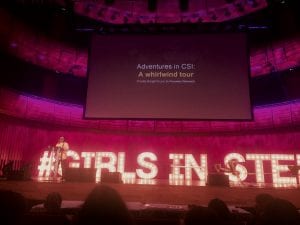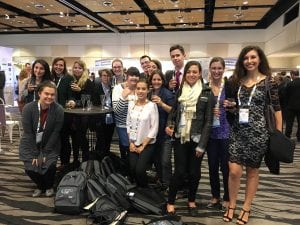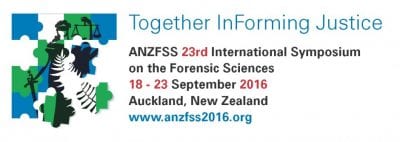Last month I was lucky enough to work with a school from Birmingham, the Selly Oak Trust School on behalf of Forensic Outreach. We spent an hour and a half together learning a bit about the history of cryptography and then on to solving mysteries! They made their own enigma machines, translated coded World War II messages, and reconstructed shredded documents. We definitely had some budding cryptanalysts that day – they solved the mysteries with flying colours!
But why is science outreach and public engagement so important?
In the early 19th Century, public lectures lead to the popularisation of science. Nowadays, scientific fields, like forensic science and forensic anthropology, are popular storylines for TV shows. This is great because it opens people’s minds to the opportunities and fascinating technologies that we use. But perhaps…they are slightly exaggerated sometimes. Sadly, our days aren’t filled with witty one liners, steely stares, and dramatically removing our sunglasses (as fun as that would be).

http://goo.gl/WliFhg

http://goo.gl/dFxH2B
These shows do a great job at demonstrating the real-world applications of the forensic sciences: using bones to identify who someone was and how they died, or using DNA to solve a sexual assault case for example. Science needs to be more integrated into our culture and media is a great way to do it.
Public engagement, or outreach, are great for both the audience and the researchers. Research Councils UK emphasise that engaging with a non-specialist audience can greatly improve your communication skills; this is definitely something that I have experienced as a facilitator. I feel more comfortable discussing my research at events and in finding ways to get the public engaged with the topic. It is a chance for kids and adults to get hands on experience with the tools and knowledge we use in our jobs. Along the way we also hope to inspire kids and young adults to consider the different career opportunities they can have.
For me, engaging with the public provides a guide for making my work more impactful. 3D imaging and forensic science both gain a lot of media attention, but more importantly the public have a significant stake in their success. Being able to present one of my research projects to a lay audience is a similar skill to presenting evidence for a jury.
The stake the public have in science is also our ability to understand and debate on issues impactful to our lives. For example, are you pro- or anti-stem cell research? Are you ready for self-driving cars? Scientific development relied equally on the researchers and the public. Without public interest there is no development, or funding, or support. Elizabeth Marincola described science without engagement as “like a tree falling in a forest with no one there to hear it; it may happen but no one will care.
Who are Forensic Outreach?

I have been working with an organisation called Forensic Outreach recently. The UCL Centre for the Forensic Sciences has enjoyed a long standing working relationship with them. They provide public engagement programmes, events (e.g. late evenings) and interactive apps to promote public interest in the work of major museums and city attractions. They work with national museums, charities, and local schools – you can check out some of their previous work here. The facilitators are a mix of PhD students, researchers, and practitioners; it’s a really fun way for us to bring our research and the subjects that we love to really wide audiences. They also run an online magazine with articles on current issues and a history of forensic science cases.
Keep up to date Forensic Outreach on Twitter, Facebook, and Instagram
Follow us on Twitter: @UCLForensicSciences | @sianysmith
 Close
Close









